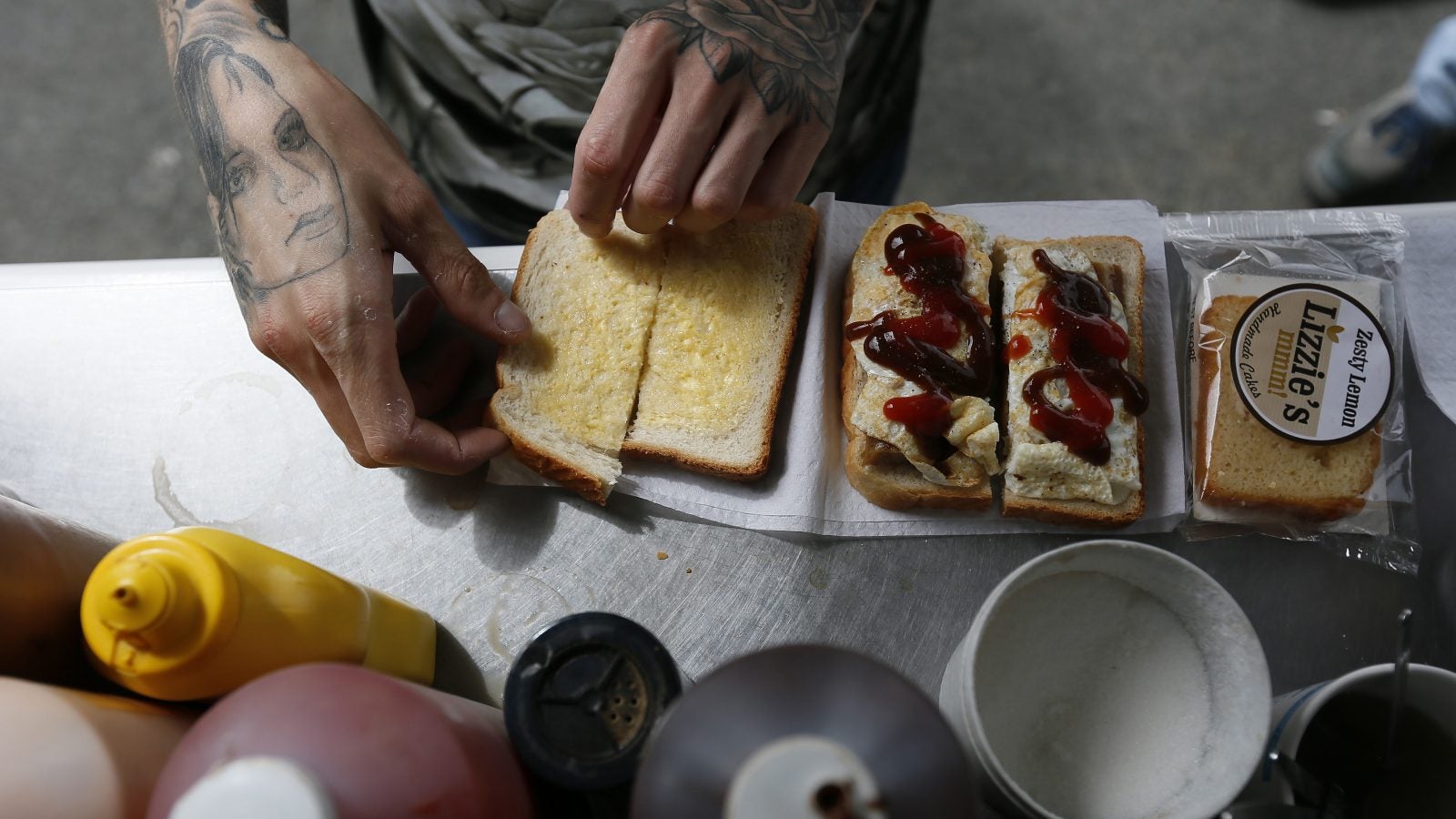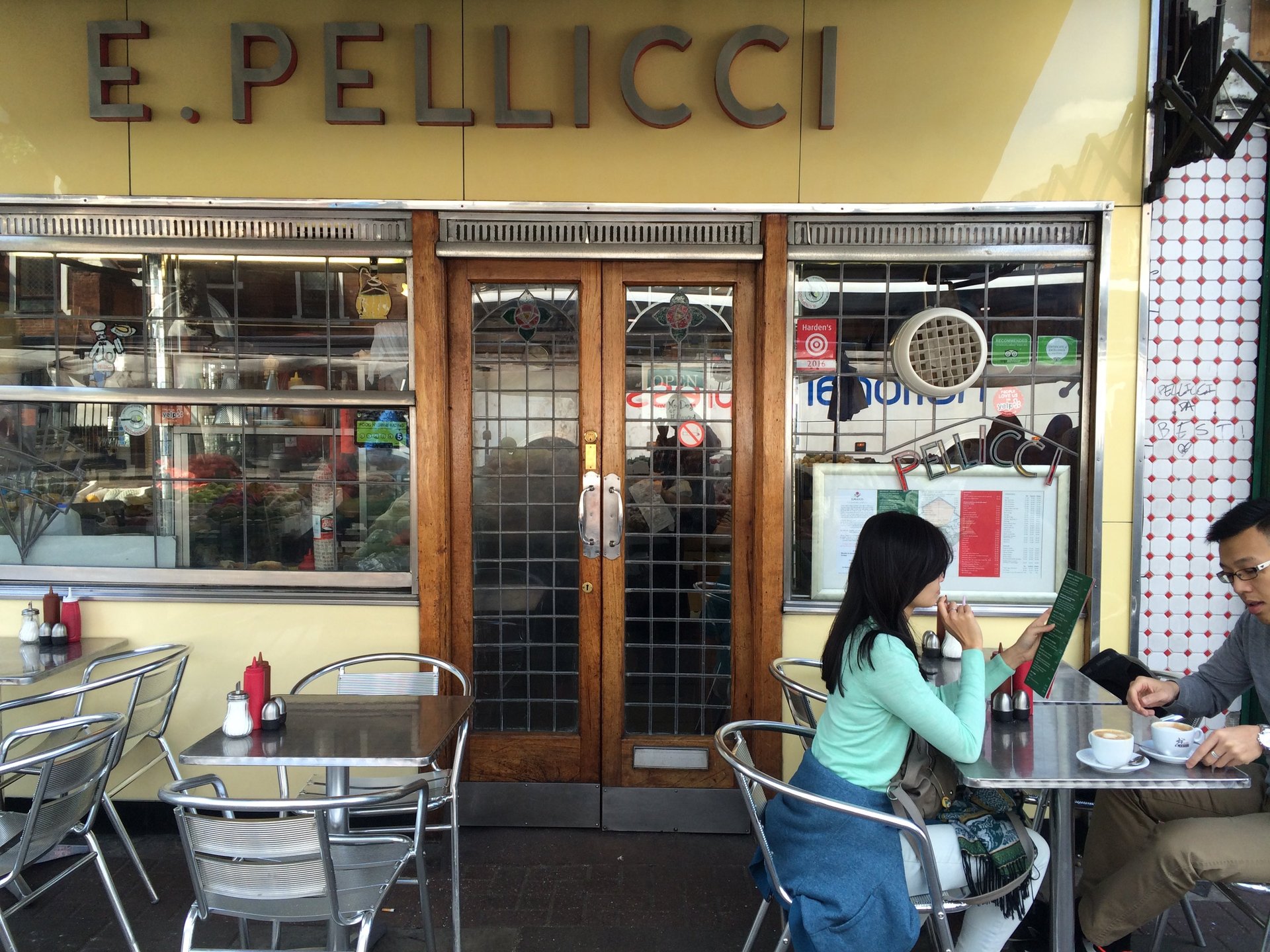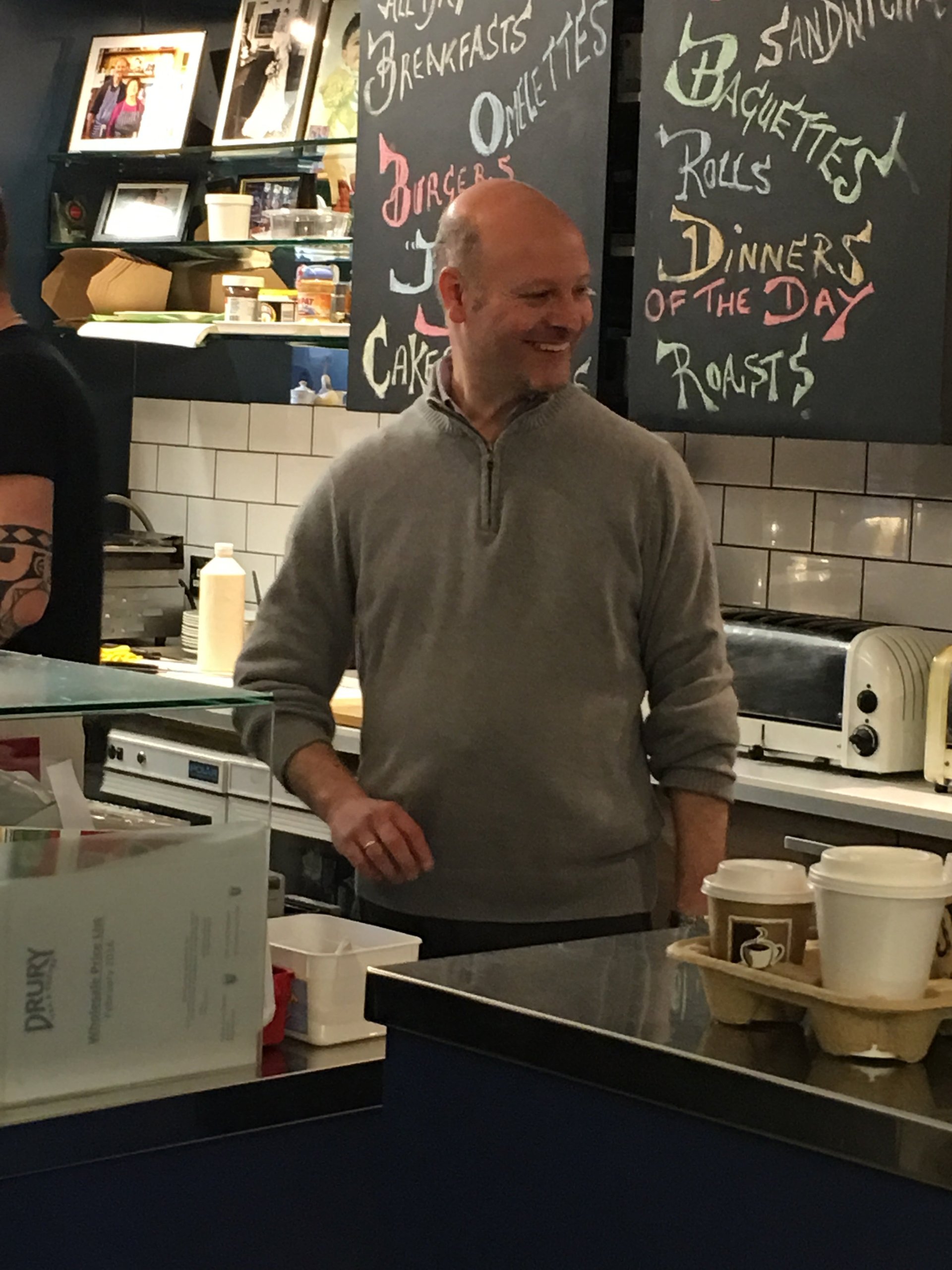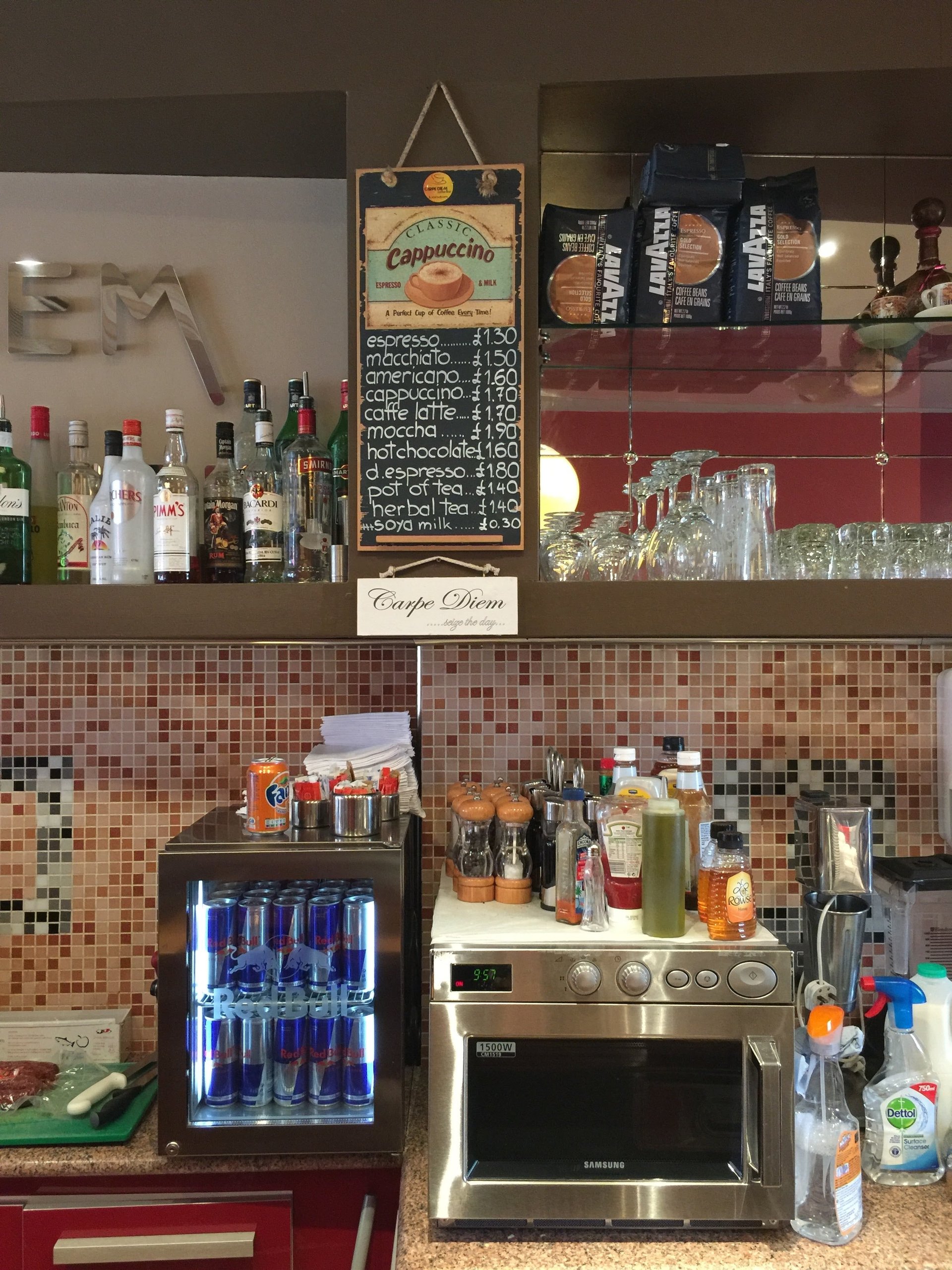“We can’t be worse off”: Londoners discuss what Brexit means to them over a proper English breakfast
A national referendum on whether the UK should remain a member of the EU is just days away. London skews towards “remain,” according to polling data. Recent polls says the nation as a whole does, too—though by a much smaller margin, which still makes the outcome deeply uncertain.


A national referendum on whether the UK should remain a member of the EU is just days away. London skews towards “remain,” according to polling data. Recent polls says the nation as a whole does, too—though by a much smaller margin, which still makes the outcome deeply uncertain.
But during breakfast-time forays to the four corners of the capital, Quartz reporters found just about every view represented. Over coffee and toast we heard tales of gut instinct and prejudice, fear and hope, confusion, passion, and conspiracy.
Divided on questions of immigration and governance, united by a love of tea and baked beans; here’s what London woke up thinking.
East: E. Pellicci

At one end, Bethnal Green Road now bisects one of London’s trendiest spots, the area around Brick Lane. At the other, it’s still a long parade of betting shops and market stalls selling vegetables and clothes. The Pelliccis have been serving breakfast here since 1900, and now the clientele is a mix of local traders, hipsters, and families.
Tony Pellicci, working in the café on a sunny weekday, won’t vote in the referendum next Thursday. He says politics isn’t for him. But the big question on his mind is immigration. People come to the UK for the benefits, he said. Another customer challenged him playfully, because Pellicci is a descendent of Italian immigrants. Pellicci insisted he has all “his paperwork” in order, and he clarified his view: Immigration should be allowed, he said, but only for people who have jobs.
Dave Field, a retired market trader, said he sees the problem as one of the UK’s sovereignty—which he feels is compromised when unelected officials in Brussels make decisions that affect his life. ”If it was just a trading block I’d vote to stay in,” he said. “We don’t know how the power structure works.” Is he voting? “Of course,” he answered, almost offended. He’ll vote to leave, and said he knows no one amongst his friends and acquaintances who plans to vote to stay.
Sitting at the back of the café reading the Sun, a popular right-leaning tabloid that has endorsed the “leave” side, Delroy Matty said the system is rigged toward the “stay” side. The street photographer said that whichever way the population votes, the powers-that-be will never let the UK leave the EU. Does he really believe the UK government will ignore the vote? Matty insists: Staying is a done deal.
West: The River Cafe
At the River Cafe—not the Michelin-starred restaurant, but a local joint near the Putney Bridge tube stop in Fulham, West London—diners were divided on Britain’s future in the EU. Tom McGovern, a 73-year-old retired taxi driver, says he will vote to leave. “We can’t be worse off,” he said. “I definitely want out because of immigration and other things.”
Marjorie Huntley, a historian, and her son-in-law, Rick Davis, agreed. Huntley said she’s passionate about leaving. “It’s a question of principle, about sovereignty and law,” she said, noting that the US would not put up with being governed by Venezuela. Britain is too crowded, she said, and being concerned about immigration is not racist, but realistic.
Davis, who works for British Airways, said he doesn’t know a single person at work who will be voting to remain. “To stay in would be giving up a fundamental democratic freedom for the promise of a slightly better pay package,” he said. And, he added, “The idea that one of the world’s largest economies won’t be able to stand on its own feet is absurd.”

Not everyone at the River Cafe wants out of the EU. Stephen Glover, a finance executive eating breakfast with his son, will vote to stay in. “There will be tremendous consequences to our trade and economic fortunes in the wake of a Brexit,” he said. “The massive uncertainty alone is not worth the risk.”
Robert Vernazza, whose father founded the River Cafe 40 years ago, agreed. Vernazza will vote to stay in, while his father will vote to leave. “But whatever happens I will have to come to work the next day,” the younger Vernazza said, laughing.
North: Carpe Diem
Carpe Diem in Hendon is busy, even after the morning commuter rush. The café doesn’t serve the full English breakfast, but the owner, Luli Nushi, insisted that one of their Albanian delicacies would be just as satisfying.
Nushi, who is 47, said he will definitely vote to remain in the bloc. In rare free moments between pouring coffees for regulars, he said he came to the country from Kosovo in 1994 and has run Carpe Diem since 2007. Kosovo isn’t yet part of the EU, but Nushi sees his local London community—mostly consisting of immigrants—benefiting from the ease of travel and the ability to work across the EU that union membership provides.

At one of the café’s tables sat two Albanian builders on their day off, Renarto Zuca and Tony Thanaj. Both 42 and not particularly chatty, they said they planned to vote to remain in the EU. ”It’s good to be part of the EU,” Zuca said. “We mostly reap benefits,” he added, before turning back to his coffee. Like Kosovo, Albania is not yet a part of the EU but Zuca and Thanaj said they would like it to be.
Alex, who is 30 and works as a nanny, did not want to share her last name. She hadn’t yet registered to vote although the deadline was close, and wasn’t sure which side she’d back.
Alex came to the UK from Slovakia before her home country became part of the EU, and she said she has seen few benefits of membership there. “Every time I go back I see the rich getting richer and the poor getting poorer,” she said.
Her theory as to why? “It’s probably because EU membership only helps the big countries like France, Germany, and the UK.”
South: Borough Market
A gray, wet, London morning didn’t stop a few brave souls from getting their caffeine and carb fixes at Borough Market, the 1,002-year-old food market that sits on the southern bank of the Thames, under London Bridge, and next to one of the city’s newest additions, the skyscraper known as the Shard.
Jim Bichard, middle-aged and sporting a sharp suit and a healthy tan, was finishing the last of his coffee at the artisan coffeehouse Monmouth. “I think we should remain, because of the economics, really,” he said. “There’s plenty of analysis that says it would hurt the economy if we left the EU.”
Bichard is a partner at PwC, a consulting firm that has published extensive studies on the issue. ”We have to do what’s best for everybody,” he said, adding that the case for exit versus the case to remain “is not even close in the next 10 years.”
Even those without a vote have an opinion.
Jennings Depriest of Tallahassee, Florida, was waiting in line to buy a Doro Tibs, an Ethiopian dish of sautéed chicken, from a nearby stall. The Barbour-clad 22-year-old is just visiting London. “I’m in favor of Britain leaving the EU for the same reason I’m in favor of the US leaving the United Nations,” he said. “The government that governs least governs best.”